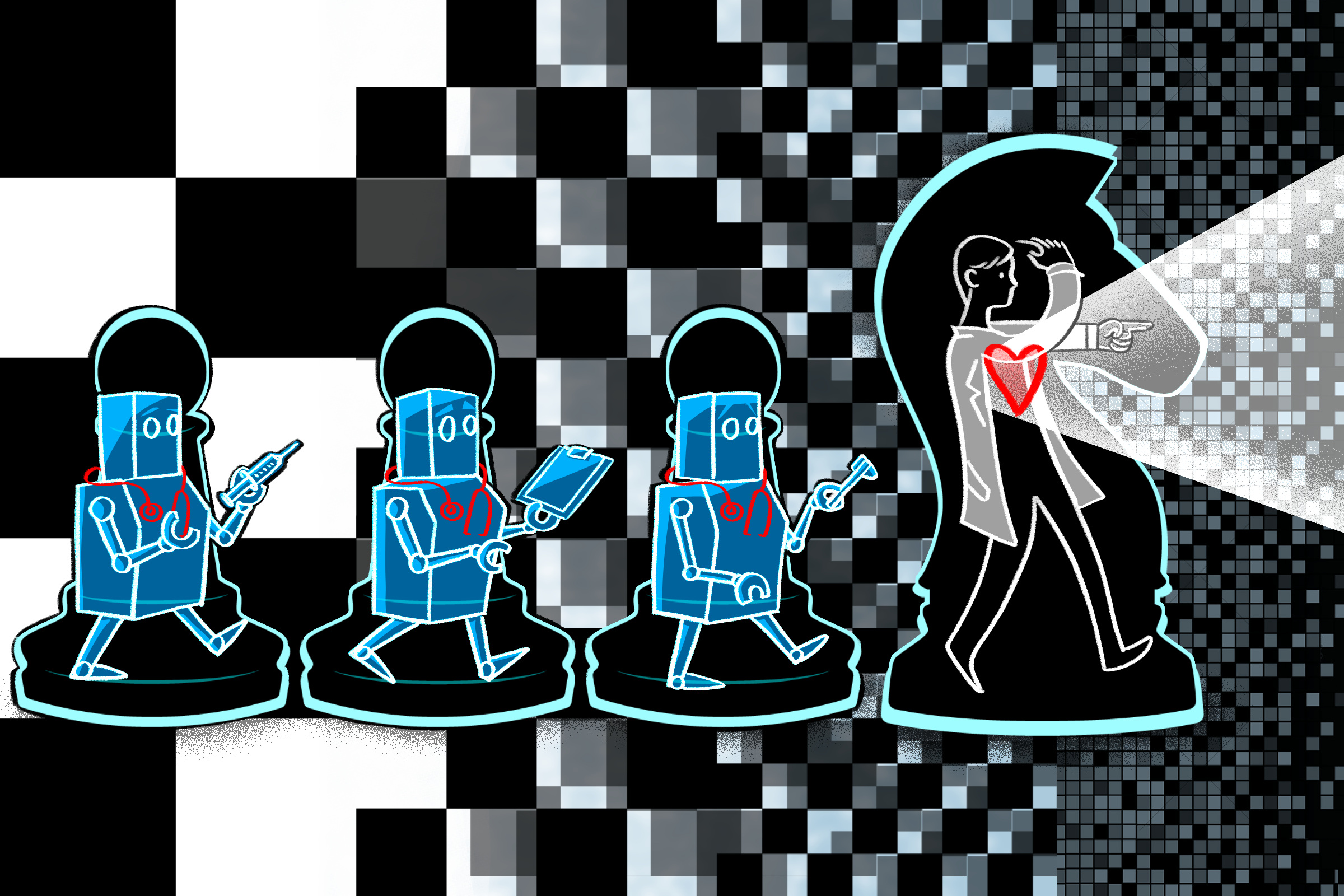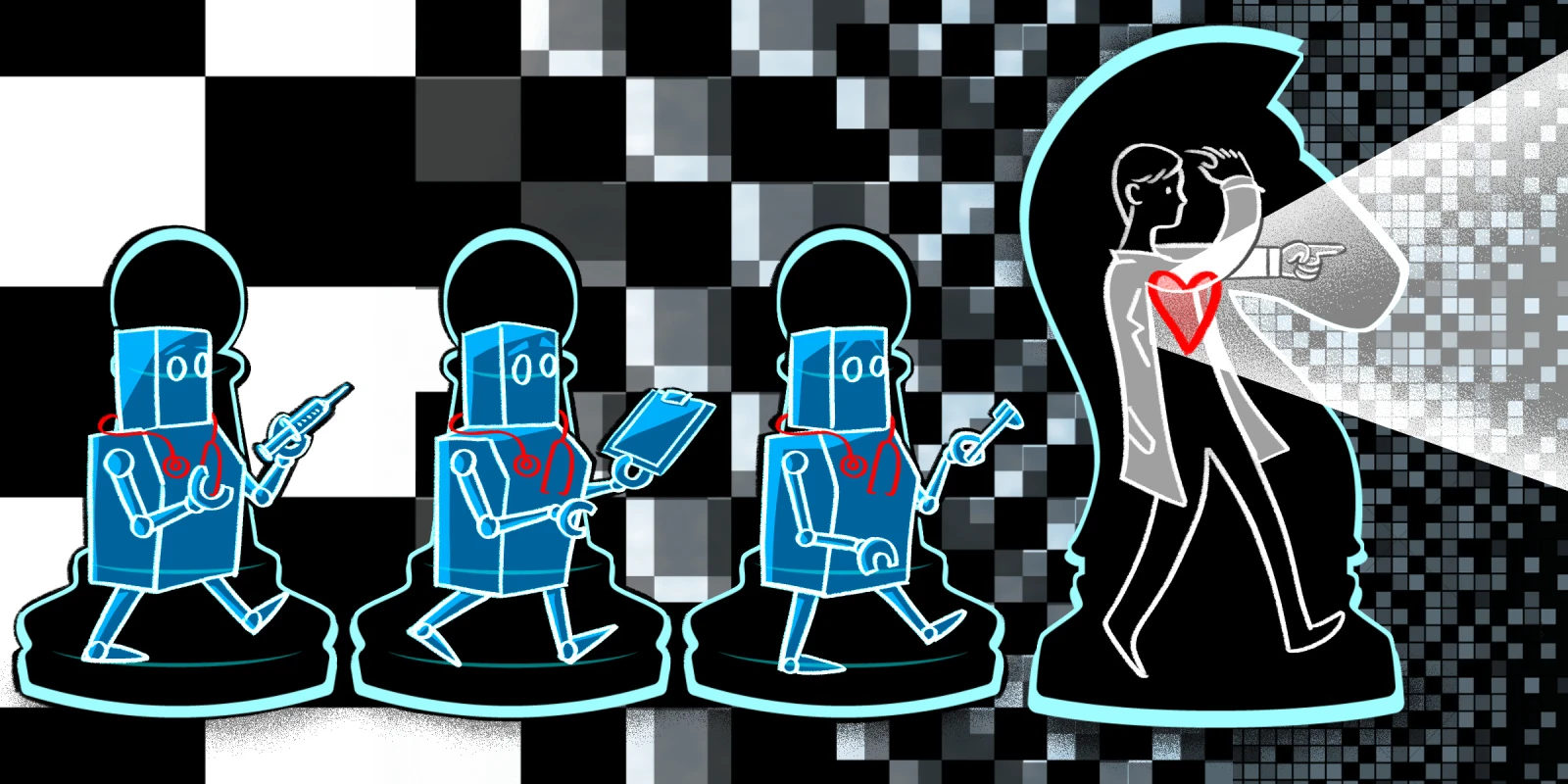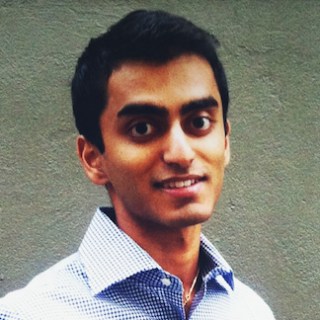
Artificial intelligence is quickly becoming an unstoppable force in clinical medicine. It seems that every week, AI-enabled tools are out-performing experienced physicians in new domains — melanoma identification, polyp classification, stroke detection, and even sepsis management — leaving doctors wondering: what’s next? For physicians who have invested thousands of hours and years of training toward learning their craft, it is uncomfortable to consider the prospects of AI in medicine. AI feels like the popular new kid in school, the unfamiliar face at the party, the prodigious younger sibling.
Understanding the implications of AI in medicine requires first acknowledging the lightning speed at which it has developed. In 1950, Claude Shannon, a renowned American mathematician, declared that teaching a computer to play “perfect” chess would be impractical; he believed that the volume of calculations and complexity of the game outmatched the abilities of a single computer. Just 46 years later in 1996, IBM’s Deep Blue system defeated not just an average human chess player but the very best chess player, Gary Kasparov. Today, even our smartphones have the ability to defeat the world’s top grandmasters.
Predicting the trajectory of AI in health care is more complicated. Fortunately, medicine isn’t like chess — it cannot be reduced to concrete positions or discrete moves. There are no black and white squares, only a large gray area, and no two games will ever start or end the same. But one must also acknowledge that computational power today is not what it was in 1950, or even 1996. Exponential growth in algorithmic speed, power, and capabilities has enabled feats that were once considered impractical. Computer systems can now have conversations, draft emails, write novels, compose music, and even drive cars.
It is tempting to speculate about what the practice of medicine will look like two decades from now. Will self-driving robots perform coronary angiograms and gastrointestinal endoscopies? Will AI-enabled workstations provide unbiased differentials, order daily laboratory tests, and personalize medication dosing? Will AI assistants make follow-up phone calls to patients, update family members, and write progress notes? What role, if any, will humans continue to play in the care of one another?
Before we can answer these questions, we must begin with an inquiry into what it actually means to be a physician. A quick glance at our curriculums, textbooks, and certification exams makes it seem that doctoring is all about getting the right answer – the correct diagnosis, the appropriate antibiotic, the most cost-effective treatment. But in several years of practice, I have learned that getting it “right” is only a small part of “getting it right,” because the hardest questions in medicine — and the ones that matter most — often don’t have a right answer. Should I have the surgery? Is my loved one in pain? Is it time to let go? These questions do not lend themselves to laboratory experiments or advanced algorithms; rather, they must be answered by the wisdom obtained from being human, from having experienced the same emotions as our patients, from having felt fear and sadness, grief and loss, anxiety and depression.
A computer can learn but it can never experience. It will never feel the adrenaline of assisting a seizing man on an airplane, or performing chest compressions in a hospital parking lot. It will never feel the pain of consoling a dying patient’s wife whose life will soon be divided into two halves: before and after her husband’s death. A computer will never feel the warmth of a stranger’s hand in an otherwise cold ICU waiting room or the unrivaled joy of telling a nervous patient that the cancer is in remission.
Computers may always be better than us at knowing and doing, but they will repeatedly fall short on one very important metric: feeling. It is our ability to feel that allows us to tackle medicine’s many unanswerable questions, enabling us to uniquely consider both evidence and emotion, pathology and personality. For example, a high-risk intervention to reverse the effects of a disabling stroke may be suitable for an athlete who loves the outdoors but not for an elderly writer who wishes to be alive for the birth of her first grandchild. The ability to feel allows us to see ourselves in the patients we take care of, to guide them in moments of uncertainty, and to support them when modern medicine can do no more.
So, as we continue to witness the rapid emergence of AI into this field, we must appreciate the ways that humans are unique. Our strengths are not in our ability to memorize, diagnose, or detect, but rather in our ability to feel, experience, and guide. We should be reassured by the importance of these traits in health care. We must not forget that, despite the technological advancements of the last century, the most delicious foods are still hand-grown, the most expensive clothing is still hand-sewn, the world’s finest watches are still handmade, and, perhaps, the most excellent care will always be hand-delivered.
Muthu Alagappan is a physician, engineer, and entrepreneur interested in transformative health care technologies. He is as an attending physician at Massachusetts General Hospital and a consultant to digital health startups.
Illustration by April Brust.







